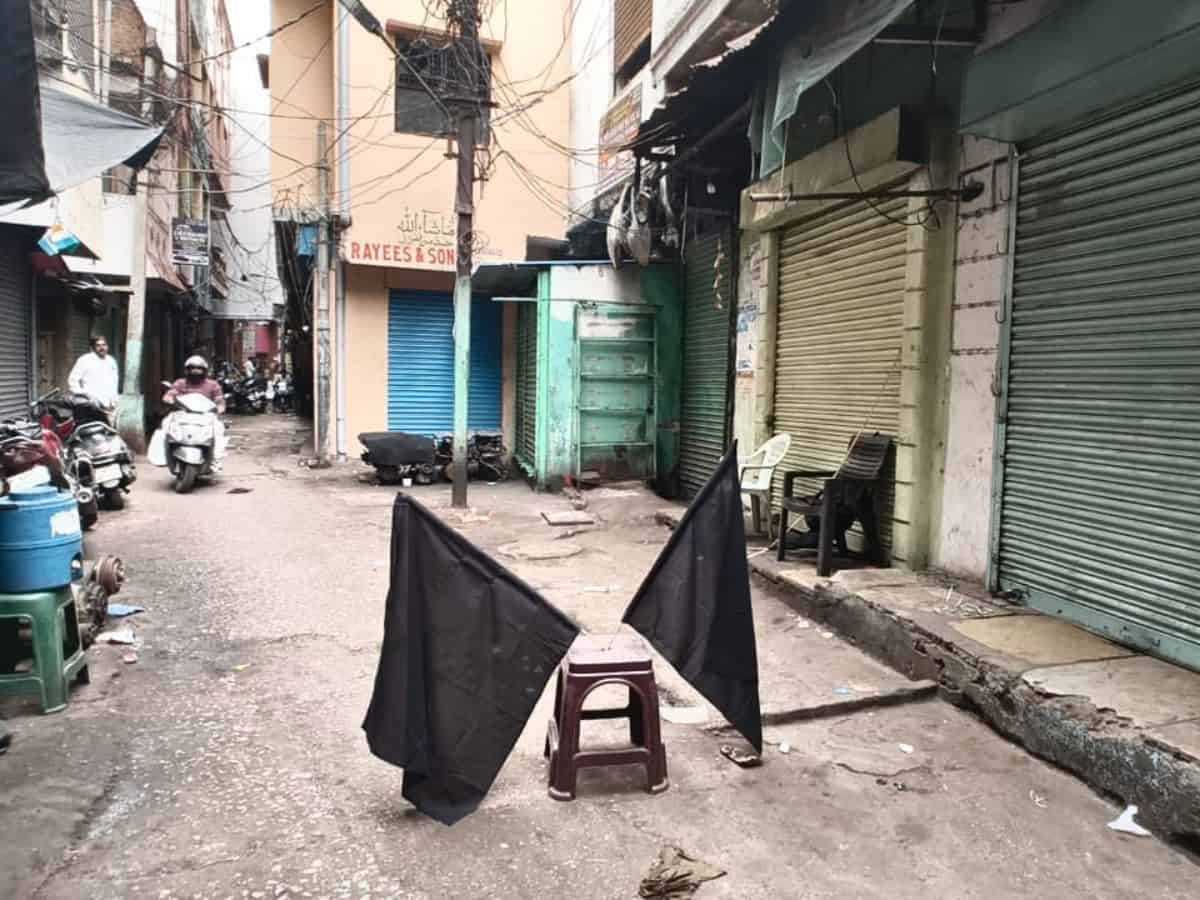
Hyderabad: Several shops in Hyderabad’s Old City remained closed on Friday, December 6, in remembrance of the Mughal-era Babri Masjid demolition that took place on the same day in 1992.
Shops in Mahaboob Gunj, Ghansi Bazaar and other quarters of the Old City observed December 6 as ‘Black Day’, condemning the act of mob violence done by radicalized Karsevaks, led by several leaders of Rashtriya Swayamsevak Sangh (RSS), Vishwa Hindu Parishad (VHP), Bharatiya Janata Party (BJP), and other Hindutva outfits in Uttar Pradesh’s Ayodhya.
Shops run by members of the Muslim community in Hyderabad’s Old City, have observed December 6 as a black day ever since, remembering the loss of the historic masjid and also the secular fabric of India.
Meanwhile, Hyderabad city police have tightened security in the city in the wake of the Babri Demolition Day.
Security has been beefed up in the wake of recent communal incidents in the country, including violence and police firing in Sambhal of Uttar Pradesh, and developments at the Ajmer Dargah.
The Central rapid action force, Telangana special police, quick response team, city rapid action force, task force, city armed reserve, and local police have been deployed at Hyderabad’s Charminar to tighten the security, with senior police officials monitoring the developments.
Babri Masjid Demolition
The destruction of the Masjid, which was believed to have been built in 1528, eventually led to the construction of the Ayodhya Ram Temple, which was inaugurated by the Indian Prime Minister in early 2024. The mosque was claimed by Hindutva organisations as the birthplace of the Hindu god Ram, over ruins of which they wanted to build a temple.
The prolonged propagation of this narrative had been a political endeavour of several BJP leaders. Among them, LK Advani, then Leader of the Opposition in the Lok Sabha, spearheaded a Rath Yatra from Delhi to the disputed site in Ayodhya. This journey mobilised thousands of radicalised Hindutva activists, known as Karsevaks, who rallied under the slogan Mandir Wahi Banayenge—meaning “The temple will be built there.”
This movement culminated in the attack and demolition of the historic mosque on 6 December 1992 by Hindutva groups. The incident triggered communal violence in the city and widespread unrest across the country.
In 2020, a Lucknow court acquitted all those accused of involvement in the violence and demolition of the mosque, including senior BJP and RSS leaders, citing a ‘lack of conclusive evidence.’
Earlier, in 2019, the Supreme Court of India delivered its final judgement on the Ayodhya dispute. The court ordered the handover of the disputed land to a trust for the construction of the Ram Janmabhoomi temple while allocating an alternative plot to the Uttar Pradesh Sunni Waqf Board elsewhere in the state as a replacement for the Babri Masjid.



